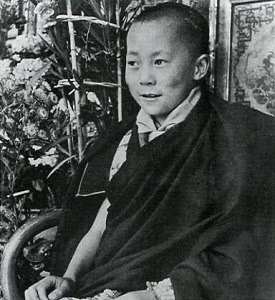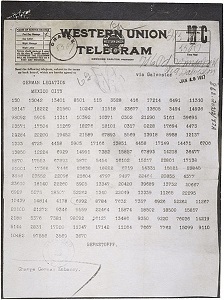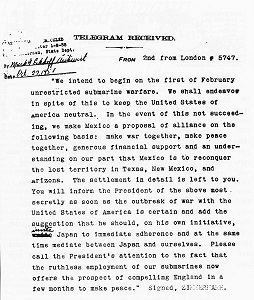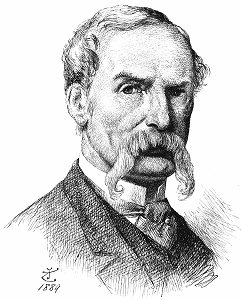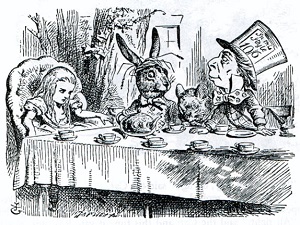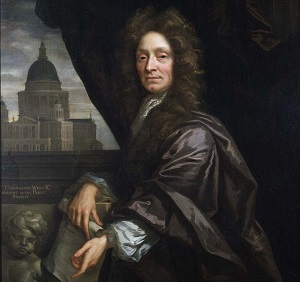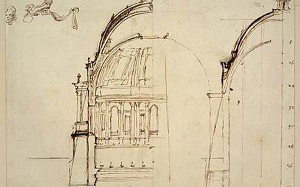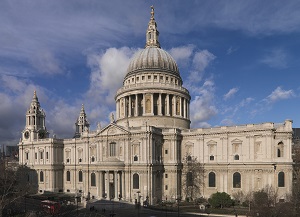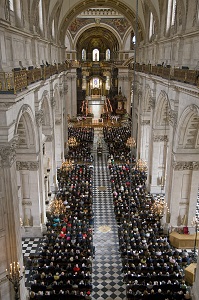The Sunday Section: This Week in History - Feb 22-28
February 22
1512 – Death of Italian navigator, Amerigo Vespucci, who discovered the New World.
Amerigo Vespucci
1741 – Death of the English agricultural innovator, Jethro Tull, aged 67. He had invented a horse-drawn, multi-tined hoe, which could be steered. Because the hoe required crops to be planted in straight, evenly-spaced rows, he invented a mechanical seed-drill, which was inspired by the pipes of the church organ he played on Sundays.
Jethro Tull
1787 – With a national debt of £800 million, France is near bankruptcy.
1819 – In a treaty signed today by Secretary of State Quincy Adams, Spain has ceded Florida, and all her colonies east of the Mississippi, to the United States.
1879 – Frank W Woolworth, the American storekeeper, has today opened the ‘FW Woolworth Co. 5 and 10 Cent Store’ in Lancaster, Pennsylvania. His initial store in New York, where everything cost the same price of 5 cents, failed. Undaunted, he decided to try again. The Amish and Mennonite communities of that part of Pennsylvania have given the new store a warm welcome. If he succeeds this time, Woolworth intends to open a chain of 5 and 10 cent stores.
1886 – The ‘Times’ newspaper runs the first-ever classified personal column.
1940 – The 14th Dalai Lama, a 5-year-old boy, was enthroned in Lhasa today. Tenzin Gyatso was born on June 6, 1935, the very day his predecessor died. Dalai Lamas are held to be the reincarnation of their predecessors, in an unbroken line stretching back over 500 years. Tenzin was found in 1938, and, at age 3, had to undergo the time-honoured test of choosing objects that had belonged to his predecessor from a group of similar objects. He picked them all without any hesitation.
Tenzin Gyatso The Dalai Lama
1946 – Dr Selman Abrahams announces he has discovered streptomycin, an antibiotic which can be used to treat tuberculosis and bacterial infections.
23
1820 – London police have foiled a plot to murder the Cabinet of the newly crowned King George IV. A police informer had successfully infiltrated a revolutionary group led by Arthur Thistlewood, a London estate agent. The plan was to plant a bomb at a house in Grosvenor Square where the Cabinet was to meet for dinner, then to throw open the prisons and set fire to the city. Police raided a house in West London today where Thistlewood had stored a cache of arms, and arrested the group. One policeman was killed in the operation.
Arthur Thistlewood
1821 – Death of John Keats, aged 25. “I shall soon be laid in the quiet grave – thank God for the quiet grave – O! I can feel the cold earth upon me – the daisies growing over me – O for this quiet – it will be my first.”
John Keats
1836 – The Mexican army lays siege to the Alamo in San Antonio, Texas.
The Alamo
1863 – John Hanning Speke and James Augustus Grant, the British explorers, have discovered the source of the Nile – Lake Victoria.
James Grant (L) and John Speke
1898 – Emile Zola is imprisoned after the publication of his letter, J’accuse, in which he accuses the government of anti-Semitism and of wrongly imprisoning Captain Alfred Dreyfus, a Jewish officer in the French army. In 1894, Dreyfus was accused of passing military information to the Germans, was found guilty, stripped of his rank and sentenced to life imprisonment. In 1896, the real traitor was discovered but was quietly sent to Tunisia. When news of an army cover-up and of Dreyfus’ possible innocence was leaked to the press, it sparked a heated debate about anti-Semitism and equal rights for all French citizens.
Emile Zola
1924 – Death of Thomas Woodrow Wilson, America’s 28th president.
Woodrow Wilson
1931 – Death of Dame Nellie Melba, the Australian opera star; the dessert, Peach Melba, is named after her.
Dame Nellie Melba
1945 – The US flag is flying ove Iwo Jima, a strategic island only 750 miles from Tokyo, but the invading force of 30,000 US Marines still has a hard fight on its hands against the Japanese garrison, thought to number about 23,000. Losses have been heavy on both sides. Once conquered, the island will serve as an Allied air base for the final assault on Japan.
1968 – Theatre censorship ends in Britain.
1987 – Death of Andy Warhol, the pope of Pop Art.
Andy Warhol
24
1582 – Pope Gregory XIII introduces the Gregorian calendar to replace the Julian calendar.
1815 – Death of Robert Fulton, the American engineer who invented the steam boat.
Robert Fulton
1825 – Death of Thomas Bowdler, aged 71. An English editor, he formed the Society for the Suppression of Vice, and edited parts of the Old Testament and Gibbon’s ‘Decline and Fall of the Roman Empire’, removing “words and expressions which cannot with propriety be read aloud in a family.” He gave a new word to the English language – ‘bowdlerising’, to remove material that is considered offensive or objectionable.
1848 – France becomes a republic for the second time when King Louis Philippe abdicates and flees to exile in England.
1917 – A telegram sent by Arthur Zimmermann, the German foreign minister, to his ambassador in Mexico has, instead, found its way to the office of US President Woodrow Wilson. The telegram was intercepted by British naval intelligence who managed to decode it. Zimmermann had invited Mexico to join Germany in an alliance against the US in return for restoring Texas, Arizona and New Mexico to Mexican control. This might well take the US into war.
Zimmerman Telegram, original and decoded
1920 – Nancy Astor, the American-born wife of Conservative MP Waldorf Astor, becomes the first woman to speak in the House of Commons. She has strong opinions on temperance, women’s rights and child welfare.
Nancy Astor (Getty images)
1920 – The National Socialist German Workers Party announces its programme for establishing the Third Reich.
1923 – The ‘Flying Scotsman’ today sets off to inaugurate the new service between London and Edinburgh. The powerful steam engine is said to be capable of travelling at 100mph, thus shrinking the 400-mile journey between the two cities to a day trip.
1946 – Juan Péron is elected President of Argentina.
Juan Péron
1961 – Anthropologists Louis and Mary Leakey have discovered a second fossil, another ‘Missing Link’ in the ancient evolutionary chain between apes and men. Their first find was 2 years ago, after a long 28-year search in East Africa’s Olduvai Gorge. Mary Leakey uncovered the 1¾ million-year-old skull of the most ancient pre-human creature, Australopithecus. Today they uncovered a child’s skull, together with a collarbone and parts of a hand.
Louis and Mary Leakey
1968 – In a counter-attack to the recent Tet Offensive, today South Vietnamese and US troops recaptured the old imperial citadel of Hue, which had been in Viet Cong hands for a month.
US Marines in Hue, dodging sniper fire
1989 – 51 people have died over the Pacific after a cargo door dropped off a Boeing 747.
25
1308 – Edward II is crowned.
Edward II
1570 – Pope Pius V excommunicates Queen Elizabeth I.
1862 – A new version of the dollar bill has been introduced by President Abraham Lincoln to finance mounting costs of the Civil War. The new notes, known as ‘greenbacks’, are to all be the same colour and the same size, whatever the denomination. Not redeemable in gold or silver, its buying power is matter of faith and confidence.
1913 – Federal income tax comes into force in the US.
1913 – The founder of Britain’s suffragette movement, Emmeline Pankhurst, goes on trial today accused of bombing the Surrey villa of the David Lloyd George, the Chancellor of the Exchequer. Nobody was hurt in the explosion, and Mrs Pankhurst has accepted responsibility for this and other violent acts.
Emmeline Pankhurst
1914 – Death of the artist, Sir John Tenniel, best known for his illustrations for ‘Alice in Wonderland’.
Sir John Tenniel Illustration - 'Alice in Wonderland'
1932 – Adolf Hitler, born in Austria, today becomes a German citizen.
1939 – The first Anderson bomb shelter is built in Britain.
1983 – Death of the American dramatist, Tennessee Williams. His plays included ‘A Streetcar Named Desire’, and ‘Cat on a Hot Tin Roof’.
Tennessee Williams
1986 – In the Philippines today, Mrs Corazon Aquino has brought an end to “the long agony” of the 20-year tyranny of the dictator, Ferdinand Marcos. Both had claimed victory in the recent elections, although Marcos’ supporters had rigged the polls. As thousands of Aquino supporters stormed Marcos’ palace, he and his family were whisked away from the roof by US Air Force helicopters, leaving the way clear for Mrs Aquino, whose husband had been shot by Marcos’ troops in 1983, to be installed as president.
Corazon Aquino's inauguration
26
1723 – Death of Sir Christopher Wren, aged 90. Already a professor of astronomy at Oxford by the time he was 30, at age 31 he turned to architecture. After the Great Fire of London destroyed 400 acres of the city in 4 days, Wren drew up plans to restore the city, which were rejected. Instead he was asked to rebuild the skyline, to consist of 51 churches and a replacement for the medieval cathedral of St. Paul’s, which had been destroyed in the fire. The endeavour took him the rest of his life, with St. Paul’s alone taking 40 years to build. The cathedral’s splendid dome is modelled on St. Peter’s Basilica in the Vatican.
Sir Christopher Wren Wren's sketch of St Paul's Cathedral
St Paul's Cathedral Interior of cathedral
1791 – The Bank of England issues the first pound note.
1815 – Napoleon Bonaparte has escaped from his exile on the island of Elba.
1839 – Aintree in Liverpool is the venue for the first Grand National steeplechase.
First Grand National ~ Charles Hunt
1885 – 15 European nations meeting in Berlin under Bismarck divide up Central and East Africa amongst themselves.
1901 – 2 leaders of the Boxer Rebellion in China were publicly executed today, ending the 2-year uprising against the presence of foreigners in China.
1935 – Robert Watson-Watt demonstrates the radar for the first time.
Robert Watson-Watts
1936 – The Volkswagen, designed by Ferdinand Porsche of Auto Union, has been unveiled in Germany. Intended to rival Henry Ford’s Model T, Chancellor Adolf Hitler hopes the new mass-produced family car will transform the German economy.
1951 – The 22n Amendment is passed, which limits US presidents to 2 four-year terms in office.
1952 – Britain has developed an atomic bomb, which will be tested later this year in the Australian desert.
1991 – Saddam Hussein orders Iraqi troops to retreat from Kuwait, simultaneously declaring a great victory.
27
1557 – The first Russian embassy in London opens.
1782 – Parliament votes to abandon the American War of Independence.
1869 – The new 15th Amendment is passed by Congress today, 4 years after the Civil War. The last of 3 amendments to the Constitution enshrining the rights of freed slaves as full US citizens, it prevents state governments denying the vote to anyone “on account of race, colour, or previous condition of servitude”. In reality, the 15th Amendment is little more than a piece of paper, and for many blacks, their situation has barely changed.
1879 – Scientists at Johns Hopkins University in Baltimore announce the discovery of saccharine.
1881 – A British force has been wiped out at Majuba by Boers of the Transvaal. In a deadly show of Boer marksmanship, General Sir George Colley was shot through the forehead.
1887 – Death of Alexander Borodin, the Russian composer.
Alexander Borodin
1933 – Berlin’s Reichstag parliament has been destroyed by fire. Although a Dutchman has been charged with arson, many find it hard to ignore the convenience of the blaze as the timing is very much in the ruling Nazi party’s favour; the party wasted no time in blaming the Communist Party.
1936 – Death of Ivan Pavlov, the Russian physiologist who discovered the conditional reflex.
Ivan Pavlov
1948 – The Czechoslovakian Communist Party today takes power in Prague.
1952 – The first session held in the new United Nations building in New York.
1991 – The Gulf War has ended with the Iraqi government announcing its unconditional acceptance of the UN resolutions on Kuwait.
28
1900 – The 4-month siege of the British garrison at Ladysmith in Natal has ended today. As a relief force, led by General Sir Redvers Bullers, rode into the battered town, the Boer forces retreated. Buller’s relief force had already lost over 1,000 men in a fight with the Boers at Spion Kop, mere miles from Ladysmith. When they invaded British Natal at the start of the war in October, the fast-moving Boer commandos proved too swift for the British force. But when the Boers tied up their forces in sieges at Kimberley, Ladysmith and Mafeking, this gave the British time to bring in reinforcements.
Devonshire Regiment at Ladysmih
1966 – The Cavern Club goes into liquidation. The venue is where the Beatles and other groups first made their mark.
1973 – Militant American Indian activists have seized the Sioux village of Wounded Knee today, and are holding 10 hostages. Challenging the government to repeat the Indian massacre that happened there more than 80 years ago, they are demanding free elections of tribal leaders, a review of all Indian treaties and a full investigation of the Bureau of Indian Affairs.
1975 – 42 people are killed on the London Underground when a train accelerates into a dead-end tunnel at Moorgate station.
1986 – Olof Palme, Sweden’s prime minister, has been shot dead and his wife wounded by an unknown assailant as the couple walked home from the cinema. The gunman escaped and no one has claimed responsibility.
Olof Palme (1986)



